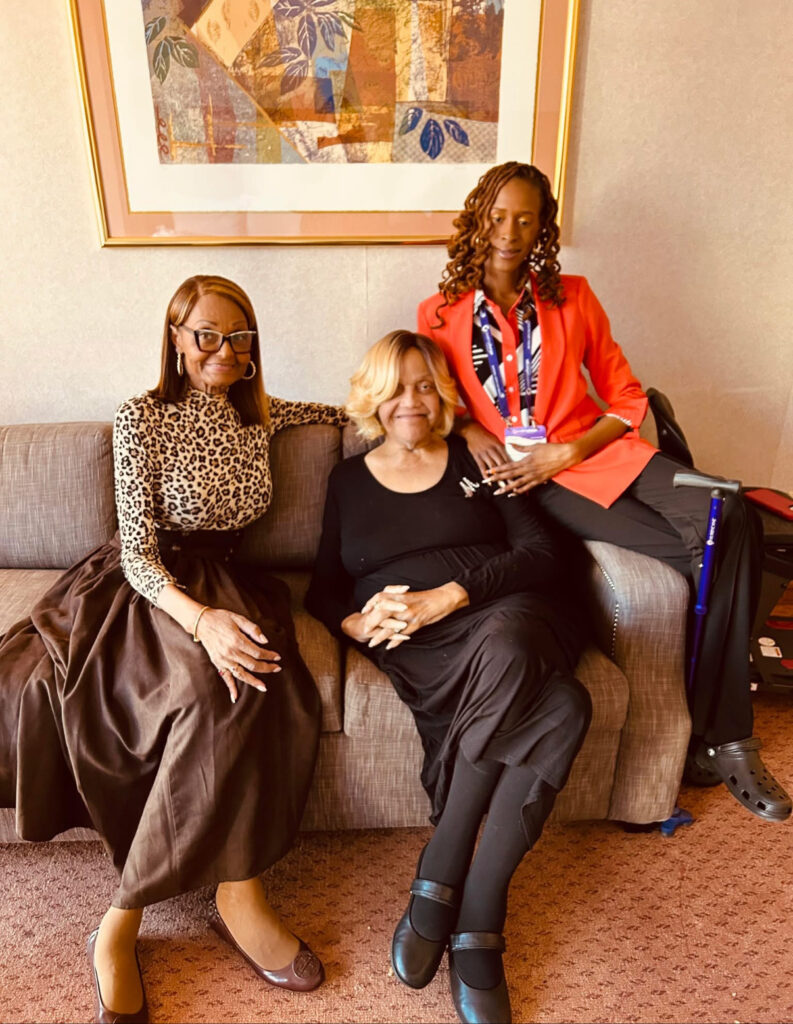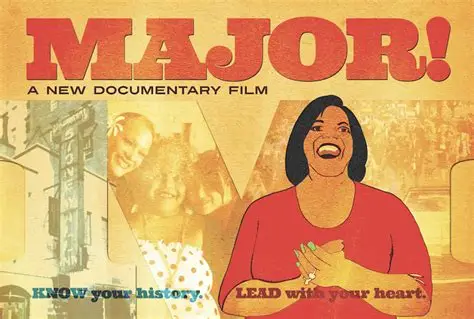Gratitude for Miss Major Griffin-Gracy: a Legends’ Legacy in San Diego
By Nicole Verdes
Last year, local Black trans elder Tracie Jada O’Brien visited Lambda Archives to participate in an intergenerational oral history project where she was interviewed by a local queer youth. Tracie arrived at Lambda with a few copies of “Miss Major Speaks: Conversations With a Black Trans Revolutionary.” The book walks us through Miss Major’s path to becoming the revolutionary she was, including some of her early years spent in San Diego.
One of the best parts of working at Lambda Archives are the surprises that come when you learn about parts of our local queer and trans history that are not as well-known as others – there’s a beauty that comes with knowing that Miss Major organized, loved, and fought for liberation right here in San Diego.
As we remember Miss Major, we honor the world she envisioned and helped build: one where Black trans women are protected, where survival itself becomes an act of defiance, and where historically marginalized community members are centered as leaders. She gave us a blueprint for resistance rooted in care. She reminded us that our liberation is bound together, and that we must fight fiercest for those the world tries hardest to erase. She showed us that revolutionary love is not abstract – it is showing up, again and again, for your people.
We’re sending love to Tracie Jada O’Brien, her dear friend and comrade. We’re sending love to our broader queer and trans family who carry forward her legacy – the countless lives she touched, sheltered, and transformed. Miss Major left us with more than memories; she left us with marching orders.

Her San Diego Period (1978/1988-1995)
Arrival in San Diego: Miss Major began community service work after moving to San Diego in 1978, initially working at a food bank and then providing direct community services for trans women. In 1988, she moved back to California with her partner Joe Bob Michael and settled in San Diego, where she continued working as a drag performer.
AIDS Crisis Work: In San Diego, she became a patient liaison for the San Diego AIDS Foundation, stepping up when few others would care for people with AIDS. Her work expanded into home health care during the AIDS epidemic.
She started a home health care agency called Angels of Care to assist people with AIDS, which organized trans women to provide compassionate care for those dying from the disease.
The “Mama Major” Legacy: Her work helping drag performers enter the profession earned her the nickname “Mama Major,” as she made others feel safe and seen and helped young LGBTQ+ community members whose families didn’t accept them with access to homes, education, and other resources.
Personal Loss and Memorial: Her partner Joe Bob Michael succumbed to AIDS-related illness in 1993. She wanted a living memorial installed to honor him and other veterans who were lost to AIDS. She fought to have a local veteran’s hospital recognize that many veterans were dying from AIDS, and in 1993, a memorial garden was built in San Diego at the VA Medical Center in La Jolla partly in honor of Joe Bob.

Moving Forward: Miss Major moved to San Francisco in 1995 to care for her parents and continued her HIV prevention and advocacy work.
Thank you, Miss Major. Rest in power.

